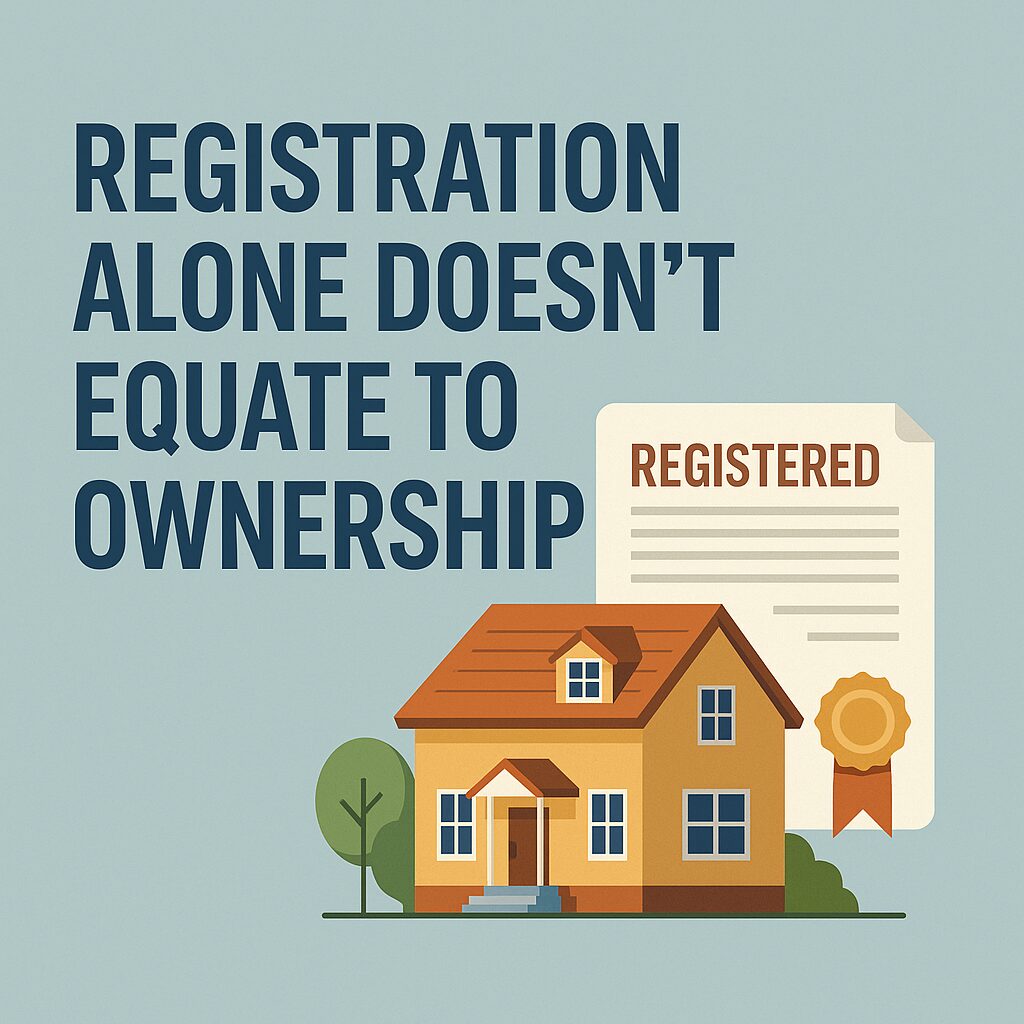On June 10, 2025, the Supreme Court of India delivered a crucial verdict clarifying that registering a property—though essential—is not by itself enough to establish legal ownership
⚖️ What the Supreme Court Declared
- Registration is a procedural formality, not proof of ownership.
- Ownership requires valid title documents, demonstration of lawful acquisition, and, in many cases, actual possession
📌 Key Judgment Details
- A registered sale deed may fail to convey ownership if the seller lacked the legal title to the property.
- Only the rights the seller actually holds are transferable—even if registration is complete.
- The sub-registrar’s role is purely administrative and does not guarantee the seller’s entitlement to sell.
📑 Documents You Still Need Beyond Registration
To fully establish ownership, ensure you have:
- Original Sale Deed – registered correctly
- Parent Title Deeds – charting the full ownership history
- Encumbrance Certificate (EC) – showing no liens or mortgages
- Possession Proof – utility bills, mutation entries, or occupation certificates
- Title Search Report – done by a qualified lawyer
- Other Relevant Papers – like partition deeds or succession documents where applicable
🔍 Why This Ruling Matters
- Prevents fraud: Stops unscrupulous sellers from transferring rights they don’t hold.
- Increases transparency: Buyers must inspect titles and possession details, not just registered deeds.
- Reduces legal disputes: Comprehensive documentation reduces uncertainty and helps resolve conflicts quicker.
- Protects buyers and financial institutions: Home loans and title insurances now demand deeper verification.
🧭 What Should You Do?
If you’re buying property, here’s a simplified checklist:
- Register the sale agreement and deed promptly.
- Retain and verify all related documents, especially the original sale deed.
- Obtain an EC and mutation copies from local authorities.
- Inspect actual possession—visit the site; check utility connections and municipal records.
- Hire a legal expert to conduct a full title search and due diligence.
✅ Final Takeaway
In India, owning property is more than just registration—it’s about having a clear, documented title, lawful possession, and transparency in the chain of ownership. The Supreme Court’s decision urges everyone involved in real estate transactions to go beyond ink and stamps, ensuring confidence and legality in property ownership.





One Comment
Sheetal
Can you provide citation of this Judgment?